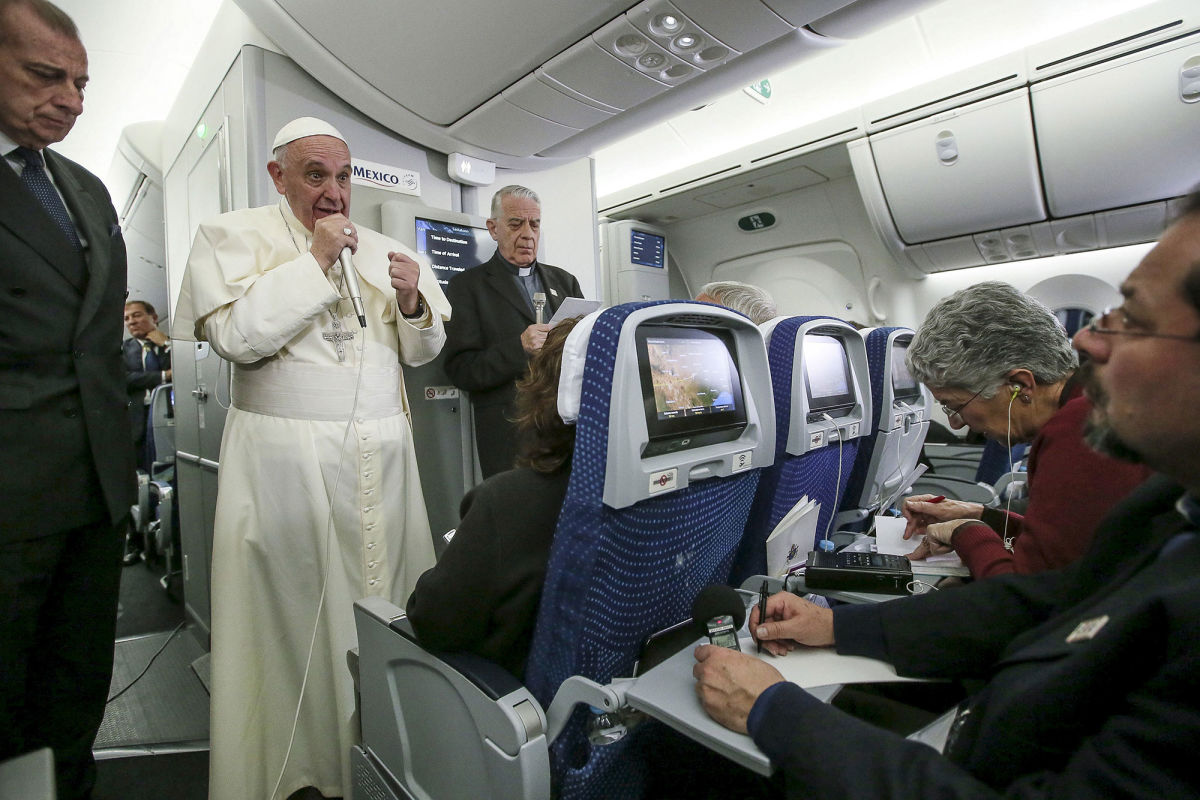
Has the Zika virus changed Catholic thinking on contraception?
In a word, no.

Is the Catholic Church back-pedalling on its ban on contraception? Some off-the-cuff remarks by Pope Francis have prompted much speculation in the media and amongst Catholics. The Pope was speaking with journalists in an informal press conference as were flying back from his recent trip to Mexico.
A Spanish journalist brought up the topic of the Zika virus which is spreading rapidly in Brazil and other Latin American countries. In pregnant women the virus has been linked to infants born with microcephaly – although this is still not proven. She asked whether Catholic women could consider abortion or avoiding pregnancy as the “lesser of two evils”.
Press conferences at 30,000 feet are not designed to showcase theological precision and subtle distinctions, so the Pope’s words were a bit jumbled and ambiguous. He responded:
On the “lesser evil”, avoiding pregnancy, we are speaking in terms of the conflict between the fifth and sixth commandment. Paul VI, a great man, in a difficult situation in Africa, permitted nuns to use contraceptives in cases of rape.
Journalists and commentators swiftly interpreted these words as signalling exceptions to an absolute ban on contraceptive if one or both of the spouses has been infected with the Zika virus.
“Pope Francis shook up an already intense debate over birth control and abortion in Latin American countries where the Zika virus is causing a public health emergency by declaring on Thursday that contraceptives could be used to prevent the spread of Zika”, read a New York Times article by journalists Simon Romero and Jim Yardley.
Similarly, CNN journalists Daniel Bourke and Elizabeth Cohen reported, “Pope Francis suggested that contraceptives may be used to prevent the spread of the Zika virus, despite the church’s longstanding ban on most forms of birth control”.
However, other observed that the Pope never mentioned contraception in his remarks, and that he has elsewhere made strong statements on the impermissibility of contraception.
It appears that in fact, Paul VI did not approve a decision to give contraceptives to nuns in the Belgian Congo who were in danger of being raped in the mayhem of the early 1960s. He was not even the Pope at the time. However, a panel of distinguished theologians were asked for their opinion and their consensus was that contraceptives were permitted as a legitimate act of self-defence. History repeated itself in the 1990s when militias in the former Yugoslavia used mass rape as a weapon of war. A theologian in favour with John Paul II wrote an article defending the use of contraceptives.
But what interests the media is not the history of rape as a weapon of terror but the principle: does this mean that there are exceptions to an absolute ban on contraception? If so, where can you apply for one?
There is no authoritative word from any Pope on this tragic situation. But it appears that the Pope Francis and his predecessors look upon contraception in the face of mass rape as an act of self-defence, and not an act whose purpose is avoiding pregnancy. It is an entirely different moral question and it does not affect the ban affirmed once and for all by Paul VI in 1968 in a document called Humane Vitae. In the words of a Swiss Catholic theologian, Martin Rhonheimer:
Consequently, the use of contraceptive measures, such as an anovulatory pill or a device that impedes the penetration of sperm into the vagina, is not per se to be considered as a human act that falls under the moral norm prohibiting contraception. In fact, in the case of a preventative use in the face of the threat of rape, we are dealing with the use of a contraceptive measure (that is, one that prevents conception, in the physical sense) in an entirely different ethical context: not with the purpose of rendering infertile a freely desired and consented-to sexual act, thus eliminating the need for continence (given that pregnancy is undesired), but to defend oneself from the possible undesired and undesirable effects of an act imposed on oneself against one’s will.
“I don’t think what the pope said about contraception was all that different from what Benedict said about condoms and AIDS in 2010,” said Charles C. Camosy, an associate professor of theological and social ethics at Fordham University, and author of Beyond the Abortion Wars. “The pope’s manner, his affect, his being pastoral, that has been different in ways the previous two popes were not. But in terms of substance, there has not been much change. The church is pretty set on its positions.”
In the interview the Pope stated emphatically that abortion is out of the question:
“Abortion is not the lesser of two evils. It is a crime. It is to kill someone in order to save another. This is what the Mafia does. It is a crime, an absolute evil.”
No ambiguity there.
https://www.bioedge.org/images/2008images/TH_press_conference.jpg
Creative commons
https://www.bioedge.org/images/2008images/Stille-Pope-Francis-Plane-Ride-1200.jpg
Brazil
Catholic bioethics
Catholic Church
contraception
Pope Francis
- How long can you put off seeing the doctor because of lockdowns? - December 3, 2021
- House of Lords debates assisted suicide—again - October 28, 2021
- Spanish government tries to restrict conscientious objection - October 28, 2021
